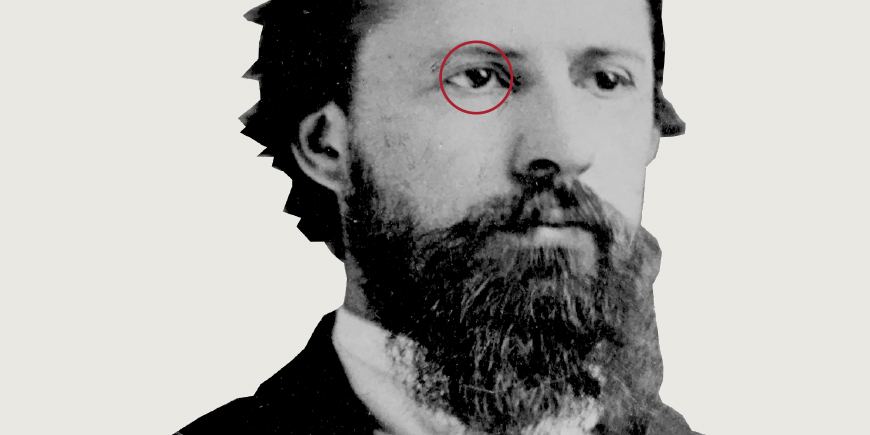Peirce about Peirce

Charles S. Peirce. A Brief Intellectual Autobiography. MS L 107, 1904
CHARLES Santiago Sanders Peirce (b. 1839), son of the mathematician Benjamin P., brought up in a circle of physicists and naturalists, and specially educated as a chemist, derived his first introduction to philosophy from the Kritik der reinen Vernunft. and other celebrated German works, and only later made acquaintance with English, Greek, and Scholastic philosophy. Accepting unreservedly Kant's opinion that the metaphysical conceptions are merely the logical conceptions differently applied, he inferred that logic ought to be studied in the spirit of the exact sciences, and regarded Kant's table of Functions of Judgment as culpably superficial. He also thought that Kant's reply to the question of how are synthetical judgments a posteriori possible was altogether insufficient, and that an exact inquiry into it would probably throw some light upon judgments a priori. Appointed in 1864 as Lecturer on Logic in Harvard University, he divided all reasoning into 1st, the deductive, including all necessary inference together with all probable inference to which the calculus of probabilities is properly applicable (rejecting inverse probabilities not founded on positive information); 2nd, the inductive, including all experimental testing of hypotheses (for he considers a physical experiment to be in a general sense of the same nature as a geometrical reasoning, which is performed by internal experimentation), but excluding 3rd, the "abductive," or the process of forming and accepting on probation, a hypothesis by which to explain surprising facts. He put forth a "critic," or mathematical deduction of the validity of these modes of reasoning, founded upon the principle that nothing is subject to logical (any more than to ethical) criticism except so far as it is subject to self-control […]
Logic is by P made synonymous with semeiotic, the pure theory of signs, in general. Its first part, speculative grammar, corresponding to stecheology (Elementarlehre), classifies and describes signs. A sign is anything; A, in a relation, r; to something, B, its object; this relation, r, consisting in fitness to determine something so as to produce something, C, the interpretant of the sign, which shall be in the relation r to B, or at least in some analogous relation. Thus, the sign involves the idea of a possible endless series of interpretations. In what relation this entire series, taken as a whole, stands to the object, B, depends upon circumstances.
Institute for Studies in Pragmaticism
-
Address
Institute for Studies in Pragmaticism, Texas Tech University, Box 4002, Lubbock, TX 79409-0002 -
Phone
806.742.3128 -
Email
pragmaticism@ttu.edu
